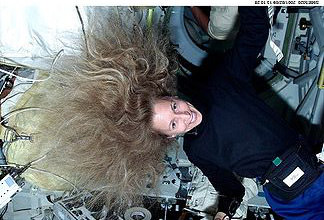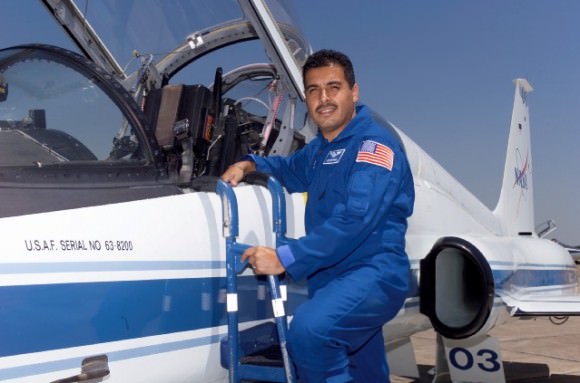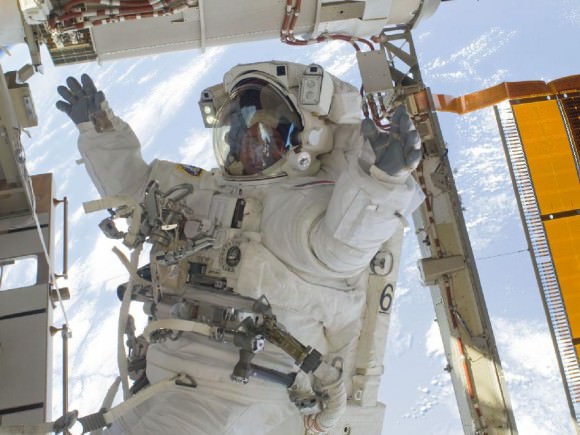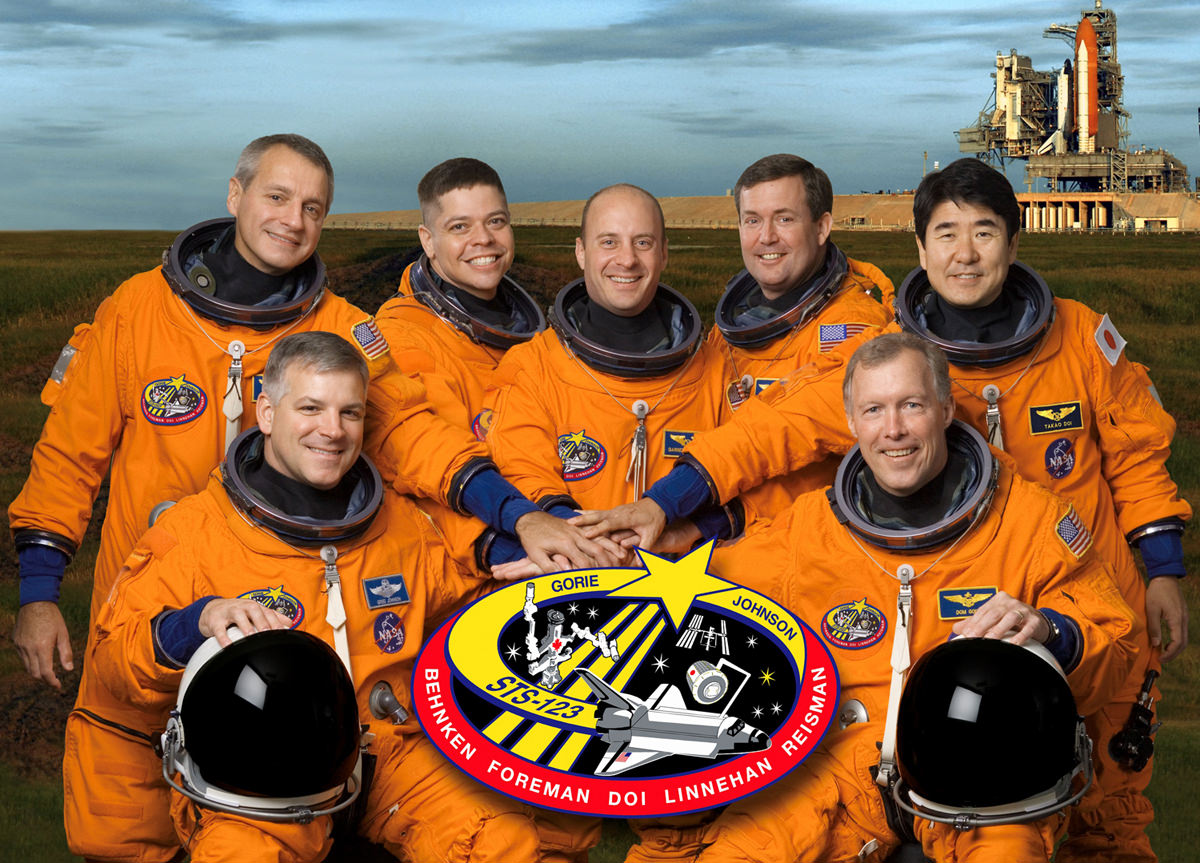[/caption]
In the wake of the recent departure of astronaut Garrett Reisman from NASA to work for SpaceX, the necessity of the National Academies review, started this past December, to determine the of the number of astronauts that NASA needs should be called into question. Reisman is but one of many space fliers that have left NASA within the past year in what some might describe as a mass exodus from the nation’s astronaut corps.
The veteran astronauts that have left NASA recently include Dom Gorie, Marsha Ivens, Jose Hernandez and Alan Poindexter. NASA has lost an astronaut at the rate of approximately one every two months. Many have left after the crew of the final shuttle mission, STS-135, was announced. While plans for new rockets and spacecraft are on the drawing boards, it may be some time before NASA is launching anyone into space.

Astronauts, by their nature, tend to be type “A” personalities, those that thrive on a challenging work environment. It is for this reason that many are probably leaving the space agency, for career tracks that are both more satisfying intellectually as well as being more lucrative.
Currently, NASA has a number of different proposals of what should follow the shuttle program, which is set to end this June when the shuttle Atlantis touches down for its final “wheelstop.” After that, the U.S. will become dependent on Russia for transportation to the International Space Station (ISS). This places NASA in an uncomfortable, if all-too familiar position, as it has had to rely on Russian Soyuz spacecraft after the Columbia disaster in 2003. Russia has recently announced that seats aboard its Soyuz spacecraft will increase; it will now cost the United States $56 million each.

Reisman is a three-time shuttle veteran, he flew up to the ISS twice, on STS-123 and STS-132 and once down on STS-124. He will join SpaceX as a senior engineer toward astronaut safety and assurance. For their part, SpaceX is thrilled to be gaining highly-skilled workers like Reisman.
“We’re excited about the great team that we are building. Our talent is the key to our success. Garrett’s experience designing and using spaceflight hardware will be invaluable as we prepare the spacecraft that will carry the next generation of explorers,” said Elon Musk, SpaceX CEO and Chief Technology Officer.
In the final analysis this is speculattion. At some point, the amount of astronauts that leave the agency could level off leaving the agency with a consistent number. Also, when the agency again finds itself in the business of launching men and women into orbit and beyond it can begin looking for new astronaut candidates. The only problem with this is that if we need more astronauts – we will have to wait for them to complete the required training. While some might say this is guessing, so too is the precepts of the National Academies Review. Until NASA forges through this tumultuous time in its history the review’s findings will be inaccurate at best.
The fact is no one knows what the “future” NASA will look like. The mission objectives of the agency just a little over a year ago were wildly different than what they are today. Until the agency has a long-term mission statement, whatever conclusion the National Academies review comes up with – is academic.



Mmm, will SpaceX provide a T-38 for those astronauts they hire? That is one hell of a perk!
The article seems to ignore the fact that NASA is moving away from two week long seven American shuttle missions to six month long 3 American ISS missions (on average half the ISS crew is typically American). Break down the math. If you do five shuttle missions a year than you fly 35 astronauts, if you fly two Station missions a year you fly six astronauts.
More joining the unemployed ranks, perhaps?
We must not forget that the ISS is slated to be sent into the ocean sometime this decade. Once that takes place the whole manned space program is kaput. There is this Space-X thing, but honestly I suspect they will find that launching satellites and probes into space is more lucrative and will have far lower liabilities. The cost of putting astronauts into space will not be from Space-X’s own coffers. It will come from the Federal Budget. There might be some conflicts ahead with this.
This will be particularly the case if these know-nothing types from the GOP really get into power and zero out a lot of things, which frankly will include a huge range of scientific research. If you parle Francais, sprecken Deutsche or even govaritch po Ruski you might consider working on that resume in those languages for those destinations. Depending on how things go in the next few years the US of A might become the US of Ignorance.
The problem is there has been no conclusive demonstration or even argument which clearly illustrates why we need humans in space. The great bulk of science that is done in space is done with telescopes, deep space sensors, robots orbiting or on planets and the like. Very little of anything comes from manned space flight. In fact the most scientifically productive shuttle flights were the service missions to the Hubble Space Telescope. The great majority of the shuttle missions, including the whole ISS, could have been skipped and our scientific understanding of the universe would have suffered hardly a jot to tiddle. That corporate knowledge on how to service complex systems in space is going to be lost, and this was the one small worthwhile bit which came out of the shuttle program.
LC
There’s a chance the ISS may remain operational till 2028. After that a new human space program will start, most plans indicate a BEO program.
“The problem is there has been no conclusive demonstration or even argument which clearly illustrates why we need humans in space.”
Because its our future. Humans will one day be born and live their lives off of Earth. Space programs aren’t only about expanding our knowledge but extending our reach.
“This will be particularly the case if these know-nothing types from the GOP really get into power and zero out a lot of things, which frankly will include a huge range of scientific research.”
Um… Obama and the Dems already did that…
When I was a young-ish boy I could with almost 100% accuracy name every astro/cosmonaut in their respective programmes. This was 1966-70 and we still regarded the spacemen and women as pioneers leading the way and it was a most thrilling time – science fiction become fact. I can remember saying that one day space flight will become the norm and ‘ordinary people’ will live and work in space. For me that day has come for even though I am still passionate about a human presence in orbit I couldn’t name even one astro/cosmonaut. The day of Everyman in space has dawned.